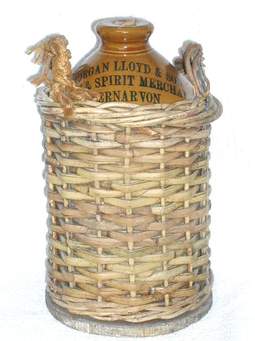
Letters from Quotidia, 2024- Episode 5. This is an ANZAC Day Special, posted on 25 April, just 11 days after my April Letter. Most of us living in Western countries owe our rather comfortable lives to those who, for the past hundred years- and more- served in the armed forces, some making the ultimate sacrifice, others with life-altering mental and or physical injuries. Here in Quotidia, that space, that place, where ordinary people lead ordinary lives, but where, from time to time, they encounter the extraordinary, I wish to commemorate those extraordinary people to whom we owe so much: our war veterans.
I’ll start with a 15-line poem by Australian poet, Vance Palmer, written in 1920. The Farmer Remembers the Somme, The first five lines, hurl us into the horrors of trench warfare on the Western Front; the middle five lines transport us to an Australian idyll; the concluding five lines are a journey in memory from the heaven of the Australian bush back to the hell of trench warfare. Will they never fade or-pass!/The-mud,-and-the-misty-figures-endlessly-coming/In file through the foul morass,/And the grey flood-water ripping the reeds and grass,/And the steel wings drumming./The hills are bright in the sun:/There’s nothing changed or marred in the well-known places;/When work for the day is done/There’s talk, and quiet laughter, and gleams of fun/On the old folks’ faces./I have returned to these:/The farm, and the kindly Bush, and the young calves lowing;/But all that my mind sees/Is a quaking bog in a mist – stark, snapped trees,/And the dark Somme flowing.//
Henry Lawson, Australia’s storyteller and bush poet wrote the poem Scots of the Riverina in 1917. In twenty lines of understated brilliance, the poem tells of the only son who runs away from the farm and is disowned by his father. He enlists and is killed in Flanders. John Schumann, who wrote the Australian Vietnam War classic I Was Only Nineteen, put music to the Lawson poem. The version I first heard was by another Australian folksinger, Fred Smith, who has written quality songs about Australia’s Afghanistan campaign. Here is my version of Scots of the Riverina, [insert song]
In my twenties, I played with a group in Wollongong called Seannachie. Our singer, Londoner, Tony Fitzgerald, was the first person I heard singing this song. Written by Ian Campbell, a Scottish-born folksinger, it was popular among the anti-nuclear Aldermaston protesters in the 1960s. Campbell was an influential force in music in his native Britain from the early sixties right up to his death in 2012. In Banter from the 1990s onwards, I took up the song and twinned it with the instrumental you hear at its end. You can hear the band and middle-aged me do this if you go to SoundCloud and enter Letters From Quotidia, Postcards Edition 7. But I’m re-recording this as an old man, now. In my 75th year I can no longer dodge the label. To recreate the instrumental, I had to dust off- quite literally- my tenor banjo which I hadn’t played in a quarter of a century! So, it’s not exactly a virtuoso performance- not that it ever was- but it does the job, I hope. [insert song]
The Snowy River Men, written by Kevin Baker should be better known. Kevin had gone on a song-collecting journey to the Snowy Mountains. It must have been after he returned to Australia from Germany and Ireland (where he stayed with us for several memorable weeks in 1981 during the hunger strikes). When I returned to Australia in 1988, I re-established contact with him in Wollongong where he told me of his song collecting in the High Country and the letter written to Mrs Allen by Hal Archer. This is my version of his song. [insert song]
The final song of this ANZAC special post is Now I’m Easy. Written by Eric Bogle, it surveys the Australian bush with a more realistic and unsentimental eye than the idyllic middle lines of the opening poem. The narrator is an old cocky or farmer who is looking back on a long, hardscrabble life, which included droughts, fires, floods but also times of plenty. He experiences the deaths of his wife, who died in childbirth, and his two sons, who died in the World War Two camp from hell that was the Burma Railway. They were among the thousands of Australian prisoners of war, who, as Wikipedia states, “found themselves at the bottom of a social system that was harsh, punitive, fanatical, and often deadly. The living and working conditions on the Burma Railway were “horrific”, with maltreatment, sickness, and starvation. The Australian Government figures suggest that of the 330,000 people who worked on the line (including 250,000 Asian labourers and 61,000 Allied POWs) about 90,000 of the labourers and about 16,000 Allied prisoners died. For all the years Banter was a going concern, my brother-in-law Jim, fronted this song. You can hear his version if you go to SoundCloud and type in Letters From Quotidia Postcard 11. This is my version. [insert song]
About war, and so much else, Thomas Hardy got it right, “Had he and I but met/By some old ancient inn,/We should have sat us down to wet/Right many a nipperkin!// “But ranged as infantry,/And staring face to face,/I shot at him as he at me,/And killed him in his place./ He concludes his poem with his usual wry and idiosyncratic take on life, “Yes; quaint and curious war is!/You shoot a fellow down/You’d treat if met where any bar is,/Or help to half-a-crown.” Next month, on May 12, the normal posts resume. Take care until then.
Scots of the Riverina poem by Henry Lawson music by John Schumann
The boy cleared out to the city from his home at harvest time —
They were Scots of the Riverina, and to run from home was a crime.
The old man burned his letters, the first and last he burned,
And he scratched his name from the Bible when the old wife’s back was turned.
A year went past and another. There were calls from the firing-line;
They heard the boy had enlisted, but the old man made no sign.
His name must never be mentioned on the farm by Gundagai —
They were Scots of the Riverina with ever the kirk hard by.
The boy came home on his “final”, and the township’s bonfire burned.
His mother’s arms were about him; but the old man’s back was turned.
The daughters begged for pardon till the old man raised his hand —
A Scot of the Riverina who was hard to understand.
The boy was killed in Flanders, where the best and bravest die.
There were tears at the Grahame homestead and grief in Gundagai;
But the old man ploughed at daybreak and the old man ploughed till the mirk
There were furrows of pain in the orchard while his housefolk went to the kirk.
The hurricane lamp in the rafters dimly and dimly burned;
And the old man died at the table when the old wife’s back was turned.
Face down on his bare arms folded he sank with his wild grey hair
Outspread o’er the open Bible and a name re-written there.
The Old Man’s Tale/ Instrumental lyrics by Ian Campbell to an old tune
At the turning o’ the century I was a boy of five
Me father went to fight the Boers and never came back alive.
Me mother was left to bring us up, no charity she’d seek,
She washed &scrubbed&scraped along on seven&six a week
When I was twelve I left the school and went to find a job
Wi’ growin kids me Ma was glad o’ the extra couple o’ bob;
I knew that better schoolin’ would’ve stood me in good stead
ye can’t afford refinements when you’re strugglin’ for your bread.
And when the Great War came along I didn’t hesitate
I took the royal shilling and went off to do my bit,
I lived on mud and tears and blood, three years or thereabouts
Then copped some gas in Flanders and got invalided out.
When the war was over and we’d settled with the Hun,
We got back into civvies and we thought the fighting done,
We’d earned the right to live in peace but we didn’t have much luck,
For then we found we had to fight for the right to go to work
In ’26 the General Strike, it found me on the street,
For I’d a wife and kid to keep and their needs I had to meet,
A brave new world was coming and the brotherhood of man
But when the strike was over we were back where we began.
I struggled through the hard times, worked just now and again
I saw the blackshirts marching and the things they did in Spain;
I raised my children decent and I taught them wrong from right,
But Hitler was the lad who came and taught them how to fight.
My daughter writes me once a month, a cheerful little note
About their colour telly and the other things they’ve got.
She’s got a son, a likely lad; he’s nearly twenty-one
And she tells me now they’ve called him up to fight in Vietnam.
We’re living on the pension now, it doesn’t go too far
Not much to show for a life that seems like one long bloody war.
When you think of all the wasted lives it makes you want to cry
I’m not sure how to change things, but by Christ we’ll have to try.
The Snowy River Men words and music Kevin Baker
Dear Mrs Allen, I write to you today,
To say that I was with your son just before he passed away
I trained with him at Goulburn and we travelled on to France
And I was there when he got hit in the German advance.
It seems so long ago now since we marched into your town
and all the young men heard the call and signed their names straight down
and the girls and the children proudly cheered us all along
Ah, Bibbenluke that day was a feast of speech and song.
But the..CH1/CH2-5…And the Snowy River Men just couldn’t march today
There’s far too many of them dead for the rest to feel that way
The cold ground of Europe has been watered with their blood
There’s a strange new crop of crosses rising in this foreign mud
From Goulburn to Sydney then a ship from Circular Quay,
A spirit of adventure stood and filled both Les and me
It was great to be with comrades true and travelling abroad
For a while the war seemed far away, and the world was to be toured
In Durban, the natives took us travelling in style
In rickshaws that they pulled along at a shilling a mile
In Cape Town we watch the black boys diving in the bay
The Snowies had a good time there and would have liked to stay Chorus
When we landed at Plymouth, we’d spent eight weeks at sea
And entrained straight way for Wilton where our camp turned out to be
They treated us well there so we really can’t complain
That the sky was grey the weather bleak and it always seemed to rain
When we set sail for France the weather had turned fine
And it wasn’t long before the call to reinforce the line
Then a shell whined above us and we were raked with stones and mud
And I turned and saw Les sitting there in a pool of his own blood Chorus
He stared as the blood poured out of his legless thigh
And I carried him back to the aid post close nearby
His blood soaked my uniform, but he never breathed a sigh
And I had no idea then that he was going to die
When I left him he spoke of a pain inside his chest
I suppose that’s what killed him I just don’t know the rest
But I know that we all miss him and can’t help but wonder why
So many Snowy men so quickly had to die Chorus
We hear the king’s grateful for all the men who’ve died
And is sending home a photo of the graves in which they lie
Well I still think the cause is right but it’s not clear anymore
Why so many Australian men should die in Europe’s war
We hope with our hearts that time will ease the pain
Of never once to see his face or hear his voice again
But I’ve seen so much death now since that day on which he died
That I can’t now be the Snowy Man that once I was inside. Chorus
Now I’m Easy words and music by Eric Bogle
For nearly sixty years I’ve been a farmer,
Through drought, fire and flood I’ve lived through plenty,
But this country’s dust and mud, have seen My tears and blood,
And its nearly over now, and now I’m easy.
I married a fine young girl when I was twenty,
But she died in giving birth when she was thirty,
No flying doctors then, just a gentle old black gin,
And its nearly over now, and now I’m easy,
She left me with two sons and a daughter,
And a bone dry farm that cries for water,
Though my cares were rough and ready,
And they grew up fine and steady,
And its nearly over now, and now I’m easy.
My daughter married young and went her own way,
My sons lay buried by the Burma railway
In this land I’ve called my home, though I’ve carried on alone,
And its nearly over now, and now I’m easy.
City folks these days despise the farmer,
Saying with dole and subsidies we have it easy,
But there’s no drought or starving stock on your sewered suburban blocks.
And its nearly over now ,and now I’m easy
For nearly sixty years I’ve been a farmer,
Through drought, fire, and flood I’ve lived through plenty,
But this country’s dust and mud, have seen My tears and blood,
And its nearly over now, and now I’m easy.
Credits: All written text, song lyrics and music (including background music) written and composed by Quentin Bega unless otherwise specified in the credits section after individual posts. Illustrative excerpts from other texts identified clearly within each podcast. I donate to and use Wikipedia frequently as one of the saner sources of information on the web.
Technical Stuff: Microphone-songs Shure SM58; (for the podcast spoken content) Audio Technica AT 2020 front-facing with pop filter); Apogee 76K also used for songs and spoken text. For recording and mixing down: 64-bit N-Track Studio 10 Extended used; Rubix 22 also used for mixing of microphone(s) and instruments. I use the Band in a Box/RealBand 2023 combo for music composition.












